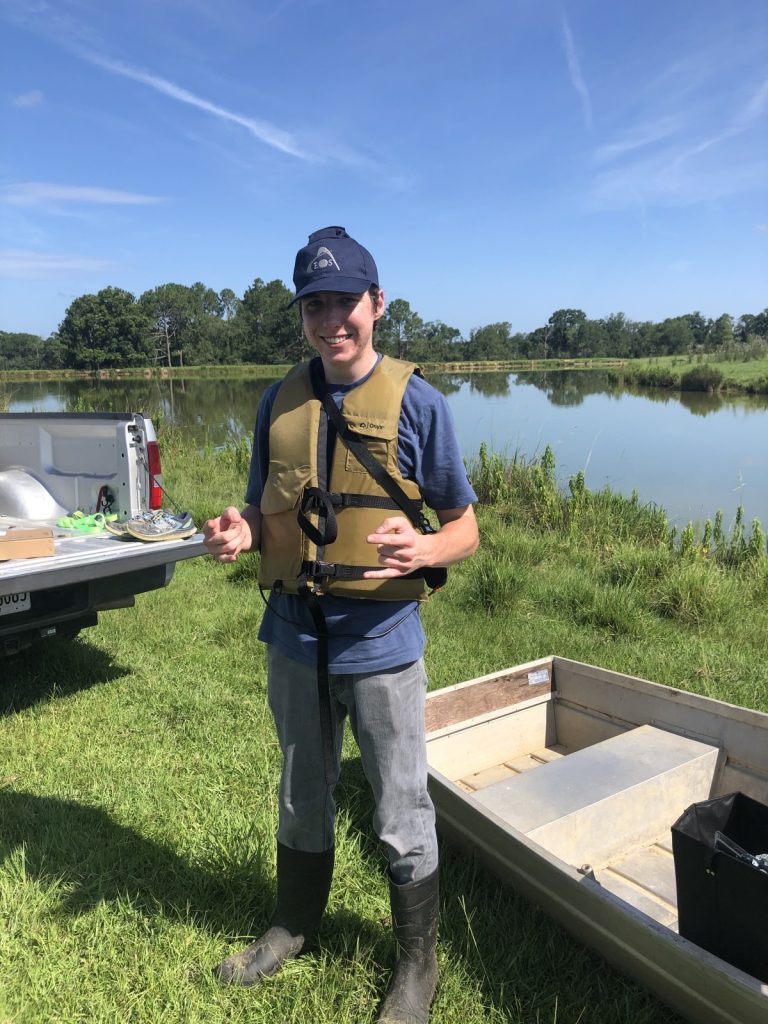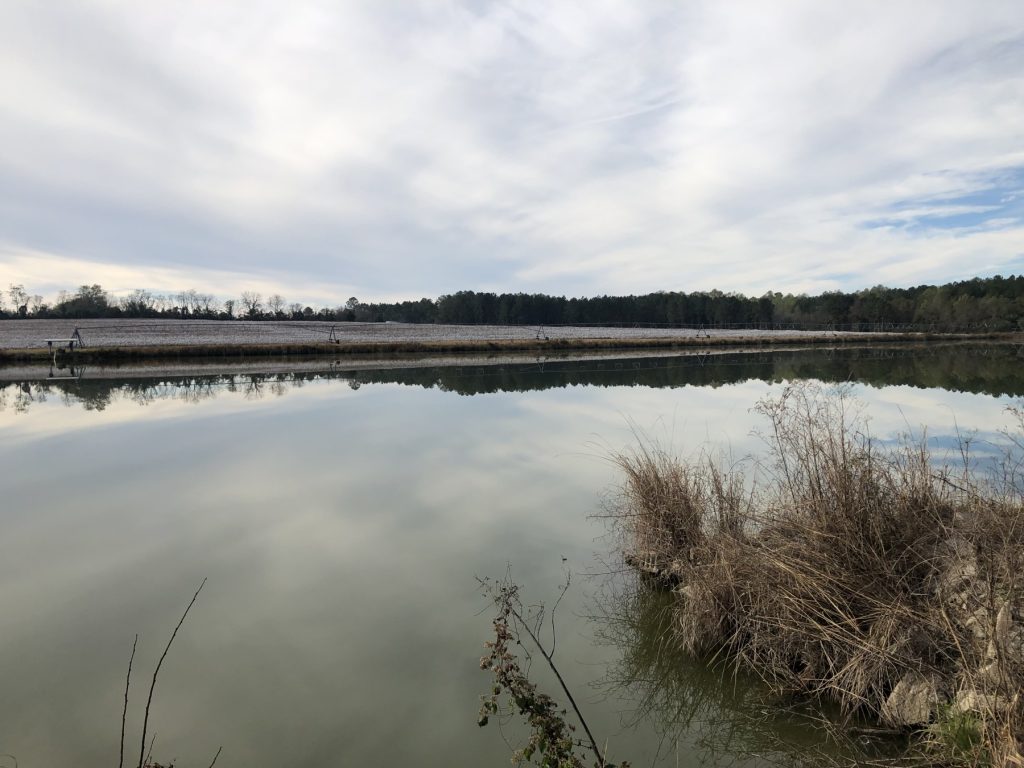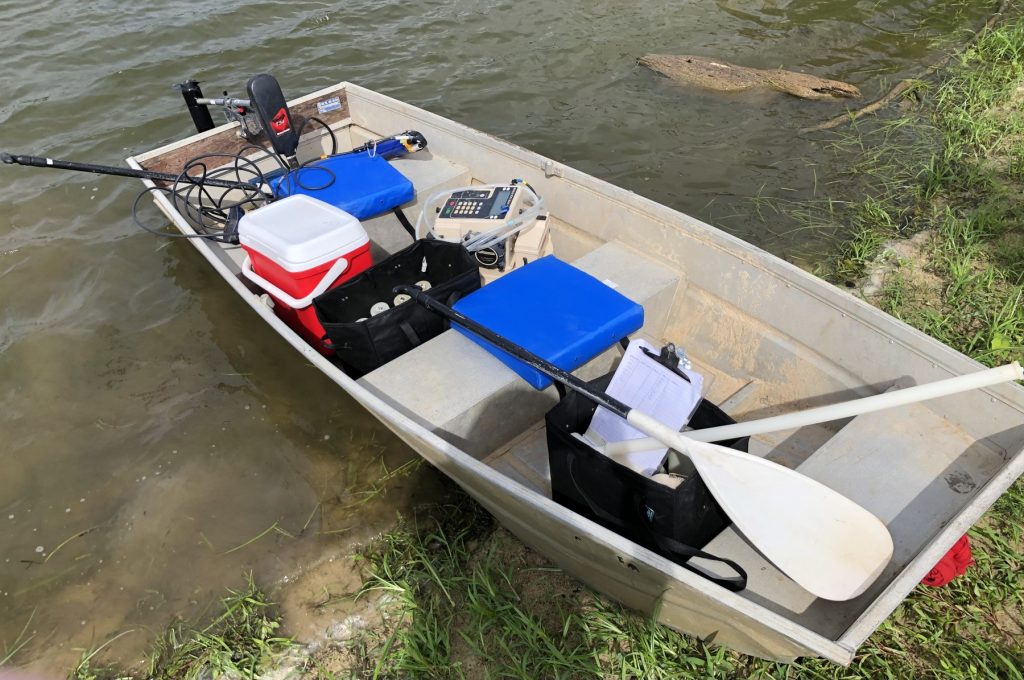Catch up with UGA Food Science & Technology’s graduate student, Andrew Widmer! Andrew has spent the past few years collecting water samples from various ponds in south Georgia. His work will help farmers and scientist identify hazards in agricultural water sources!

Hello, my name is Andrew Widmer, and I’m in my second year of study as a graduate student working with Dr. Laurel Dunn. I completed my BSA in Food Science at UGA in 2021, and have enjoyed the opportunity to continue my studies here in the department.
Escherichia coli is often used as an indicator of fecal contamination in water used to irrigate fresh produce. My research seeks to understand the patterns of high and low E. coli levels that may develop in irrigation ponds, how those patterns change with the seasons and vary with different physical and chemical water parameters.
I’ve completed two years of sampling – with last year’s data collected in tandem with more thorough water quality instrumentation. Analysis for mean relative differences at each point, and random forest models used to evaluate variable importance, has teased out trends and further points of study. I will be presenting this analysis at the International Association for Food Protection’s 2023 conference in Toronto this July.


At the end of this growing season, I’ll turn my focus towards the lab. There I’ll examine individual colonies collected during my E. coli quantification efforts. We will look for pathogenic Shiga toxin-production genes, to see if we can predict higher risk for Shiga toxin-producing E. coli, which is a recurring problem for produce growers around the country. I’ve also collected additional samples for Salmonella, and hope to examine correlations between the water quality data we’ve gathered and this important pathogen to help growers better identify potential hazards in their water sources.